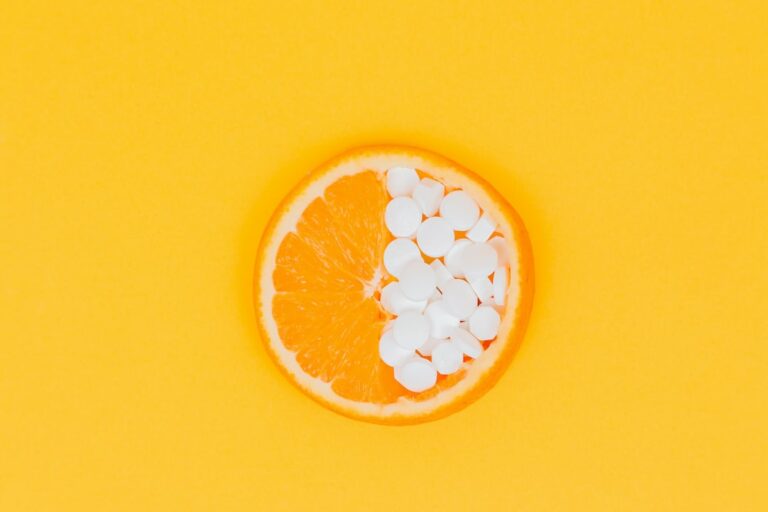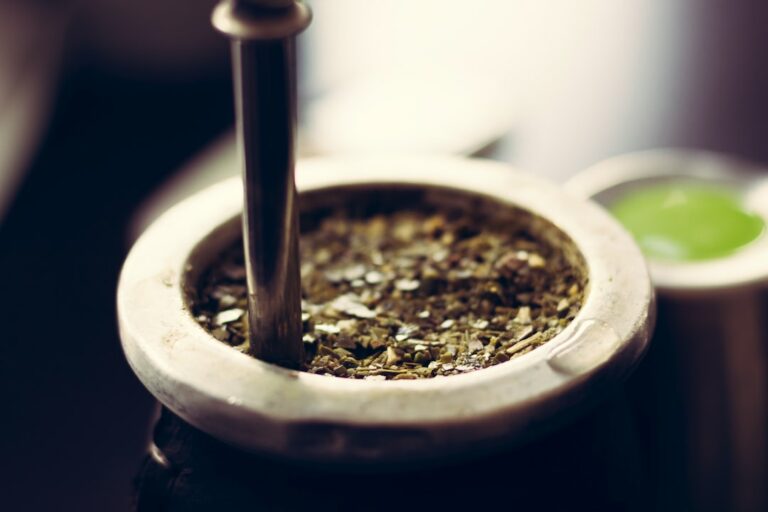Introduction
What is Vitamin C?
Vitamin C, also known as ascorbic acid, is a water-soluble vitamin that is essential for the growth, development, and repair of body tissues. It plays a crucial role in the formation of collagen, absorption of iron, and maintenance of cartilage, bones, and teeth. Additionally, vitamin C is a powerful antioxidant that helps protect cells from damage caused by free radicals. It is found naturally in many fruits and vegetables, including citrus fruits, strawberries, kiwi, bell peppers, and broccoli. While the recommended daily intake of vitamin C for adults is 75-90 mg, some individuals may choose to take higher doses for various reasons. However, it is important to note that consuming excessively high doses, such as 10,000 mg, may lead to adverse effects and should be done under medical supervision.
Importance of Vitamin C
Vitamin C is an essential nutrient that plays a crucial role in maintaining overall health. It is a powerful antioxidant that helps protect the body against free radicals, which can cause damage to cells and contribute to the development of chronic diseases. Vitamin C also plays a key role in collagen synthesis, which is important for the health of skin, bones, and connective tissues. Additionally, it supports the immune system by enhancing the production of white blood cells and promoting their function. Adequate intake of vitamin C is necessary for optimal health and well-being.
Recommended Daily Intake of Vitamin C
The recommended daily intake of Vitamin C varies depending on various factors such as age, sex, and overall health. However, the general guideline for adults is around 75 to 90 milligrams per day. It is important to note that exceeding the recommended daily intake of Vitamin C, such as consuming 10,000 mg, may lead to adverse effects and potential health risks. It is always advisable to consult with a healthcare professional or nutritionist before significantly increasing your Vitamin C intake. Additionally, it is essential to obtain Vitamin C from natural food sources rather than relying solely on supplements. Foods rich in Vitamin C include citrus fruits, strawberries, kiwi, bell peppers, and broccoli. Incorporating these foods into your daily diet can help ensure you meet your recommended daily intake of Vitamin C and maintain optimal health.
Benefits of Vitamin C

Boosts Immune System
Vitamin C is known for its ability to boost the immune system. It plays a crucial role in supporting the function of various immune cells and enhancing the production of antibodies. Adequate intake of vitamin C can help strengthen the body’s defense against infections and illnesses. However, it is important to note that the recommended daily intake of vitamin C for adults is 75 to 90 mg, and exceeding the safe upper limit of 2000 mg per day may lead to adverse effects. Therefore, it is essential to consult with a healthcare professional before considering high-dose supplementation of vitamin C.
Acts as an Antioxidant
Vitamin C acts as an antioxidant in the body, helping to protect cells from damage caused by free radicals. Free radicals are unstable molecules that can cause oxidative stress and contribute to the development of chronic diseases such as heart disease and cancer. By neutralizing these free radicals, vitamin C helps to reduce the risk of oxidative damage and maintain overall health. Studies have shown that vitamin C has a powerful antioxidant effect, especially when consumed in adequate amounts. However, it is important to note that the recommended daily intake of vitamin C is 75-90 mg for adults, and consuming excessively high doses, such as 10,000 mg, may have adverse effects on health.
Promotes Collagen Production
Vitamin C is an essential nutrient that plays a crucial role in promoting collagen production. Collagen is a protein that provides structure to our skin, bones, and connective tissues. It helps maintain the elasticity and strength of our skin, keeping it firm and youthful-looking. Consuming 10,000 mg of vitamin C may seem like a high dosage, but it is generally considered safe for most individuals. However, it is important to note that excessive intake of vitamin C can lead to gastrointestinal discomfort and diarrhea. Therefore, it is recommended to consult with a healthcare professional before significantly increasing your vitamin C intake. When it comes to promoting collagen production, vitamin C is not the only option. There are also other natural remedies, such as herbal anxiety remedies, that can help enhance collagen synthesis and improve skin health.
Potential Risks of Excessive Vitamin C Intake

Digestive Issues
Digestive issues can occur when taking high doses of vitamin C, such as 10,000 mg. Some individuals may experience symptoms such as diarrhea, stomach cramps, and nausea. It is important to consult with a healthcare professional before taking such high doses of vitamin C to avoid any potential digestive problems.
Kidney Stones
Kidney stones, also known as renal calculi, are hard deposits that form in the kidneys. They are made up of minerals and salts, such as calcium, oxalate, and uric acid. Kidney stones can vary in size and shape, ranging from small grains to larger, jagged stones. These stones can cause severe pain and discomfort when they pass through the urinary tract. If left untreated, kidney stones can lead to complications such as urinary tract infections and kidney damage. To prevent the formation of kidney stones, it is important to drink plenty of water and avoid certain foods that are high in oxalate, such as spinach, rhubarb, and beetroot. Additionally, some medicinal herbs like dandelion root and nettle leaf may help support kidney health and reduce the risk of kidney stone formation.
Interference with Medications
Interference with Medications
Vitamin C is a powerful antioxidant that offers numerous health benefits. However, it is important to be cautious when taking high doses of vitamin C, such as 10,000 mg. One potential concern is the interference of vitamin C with certain medications. It is recommended to consult with a healthcare professional before taking high doses of vitamin C, especially if you are currently taking any medications. Some medications, such as certain types of chemotherapy drugs and blood thinners, may interact with vitamin C and affect their effectiveness. Additionally, vitamin C may increase the absorption of iron, which could be problematic for individuals with iron overload conditions. Therefore, it is crucial to discuss your vitamin C intake with your healthcare provider to ensure it does not interfere with any medications you are taking.
Safe Upper Limit of Vitamin C

Recommended Daily Allowance (RDA)
The Recommended Daily Allowance (RDA) is a guideline that suggests the amount of a specific nutrient that an average healthy person needs to consume daily in order to maintain good health. It is important to note that the RDA for vitamin C is 90 mg for men and 75 mg for women. However, some alternative medicine practitioners advocate for higher doses of vitamin C, such as 10,000 mg, claiming that it can provide various health benefits. It is crucial to consult with a healthcare professional before considering such high doses of vitamin C, as excessive intake may lead to adverse effects. While alternative medicine approaches may offer different perspectives, it is essential to prioritize evidence-based recommendations from qualified healthcare providers.
Tolerable Upper Intake Level (UL)
The Tolerable Upper Intake Level (UL) is the highest amount of a nutrient that is likely to be safe for most individuals. It is important to note that the UL is not a recommended intake level, but rather a level at which the risk of adverse effects increases. The UL for vitamin C is currently set at 2,000 mg per day for adults. This value is based on the assessment of potential risks associated with high doses of vitamin C, including gastrointestinal disturbances and the formation of kidney stones. It is recommended to consult with a healthcare professional before exceeding the UL, especially if you have any underlying health conditions or are taking medications. While conventional medicine generally supports the use of vitamin C as a dietary supplement, it is important to follow the recommended UL to avoid potential adverse effects.
Is 10,000 mg of Vitamin C Too Much?
Vitamin C is an essential nutrient that plays a crucial role in maintaining overall health. It is known for its immune-boosting properties and its ability to protect against oxidative stress. However, when it comes to the question of whether 10,000 mg of Vitamin C is too much, the answer is a resounding yes. Taking such a high dose of Vitamin C can lead to a range of adverse effects, including gastrointestinal disturbances, such as diarrhea and stomach cramps. Additionally, excessive intake of Vitamin C can increase the risk of kidney stones and interfere with the absorption of other essential nutrients. It is important to note that the recommended daily intake of Vitamin C for adults is 75-90 mg, and exceeding this amount can have negative consequences for your health. It is always advisable to consult with a healthcare professional before significantly increasing your Vitamin C intake.
Conclusion

Balancing Vitamin C Intake
Vitamin C is an essential nutrient that plays a crucial role in maintaining overall health. It is a powerful antioxidant that helps protect the body against free radicals and supports the immune system. While the recommended daily intake of vitamin C for adults is 75-90 mg, there is ongoing debate about whether higher doses, such as 10,000 mg, are too much. Balancing vitamin C intake is important to ensure optimal health benefits without exceeding safe levels. It is always advisable to consult with a healthcare professional before significantly increasing vitamin C intake or taking any new supplements.
Consulting a Healthcare Professional
When considering the question of whether 10,000 mg of vitamin C is too much, it is important to consult a healthcare professional. Vitamin C is an essential nutrient that plays a crucial role in supporting the immune system and promoting overall health. However, taking excessive amounts of vitamin C can lead to adverse effects such as diarrhea, stomach cramps, and nausea. Consulting a healthcare professional will provide personalized guidance based on individual needs and medical history. They can assess the specific circumstances and recommend the appropriate dosage of vitamin C to ensure optimal health benefits without risking any potential harm.
Importance of a Balanced Diet
A balanced diet is crucial for maintaining good overall health and well-being. It provides the necessary nutrients, vitamins, and minerals that our bodies need to function properly. One important aspect of a balanced diet is the impact it has on mental health. Research has shown that a diet rich in fruits, vegetables, whole grains, and lean proteins can help improve mood and reduce the risk of mental health disorders. Additionally, a balanced diet can aid in withdrawal and recovery from various substances. By providing the body with the essential nutrients it needs, a balanced diet can support the healing process and promote overall well-being.
FAQ (Frequently Asked Questions)

Can I overdose on Vitamin C?
No, it is highly unlikely to overdose on Vitamin C with a daily intake of 10,000 mg. The recommended daily intake for adults is 75-90 mg for males and 65-75 mg for females. While exceeding the recommended intake may lead to gastrointestinal discomfort or diarrhea, it is generally considered safe. However, it is important to consult with a healthcare professional before significantly increasing your Vitamin C intake, especially if you have any pre-existing medical conditions or are taking medications that may interact with high doses of Vitamin C.
What are the symptoms of Vitamin C overdose?
Vitamin C overdose can lead to various symptoms. Excessive intake of Vitamin C, typically above 2000 mg per day, can cause gastrointestinal issues such as diarrhea, nausea, and abdominal cramps. Other symptoms may include headaches, insomnia, and kidney stones. It is important to note that these symptoms are rare and usually occur in individuals who take extremely high doses of Vitamin C, such as 10,000 mg or more per day. If you experience any of these symptoms, it is recommended to consult a healthcare professional for proper guidance and advice.
Is it safe to take high doses of Vitamin C for a short period of time?
Taking high doses of Vitamin C for a short period of time can be safe for most people. However, it is important to note that exceeding the recommended daily dosage of 2,000 mg may cause gastrointestinal disturbances such as diarrhea and stomach cramps. It is always advisable to consult with a healthcare professional before taking any high doses of Vitamin C. Additionally, it is worth considering that there are other natural alternatives, such as herbs for health, that can provide similar benefits without the risk of exceeding safe dosage levels.

































